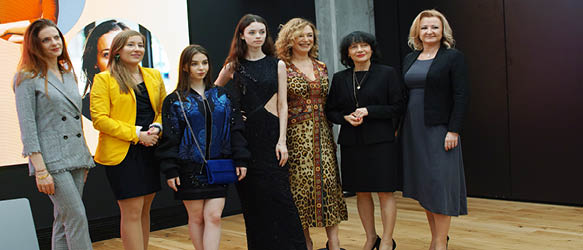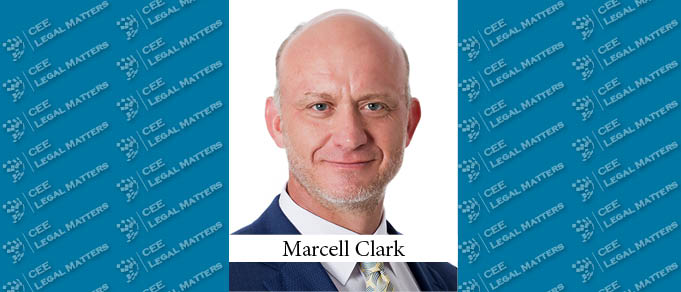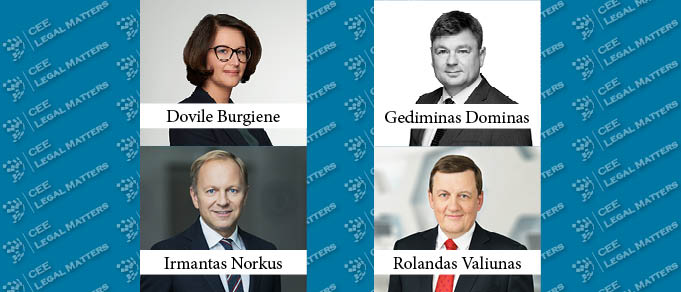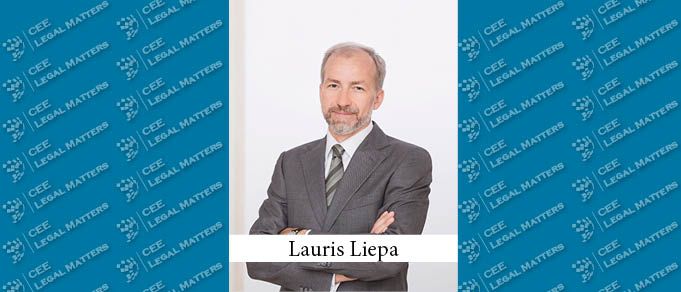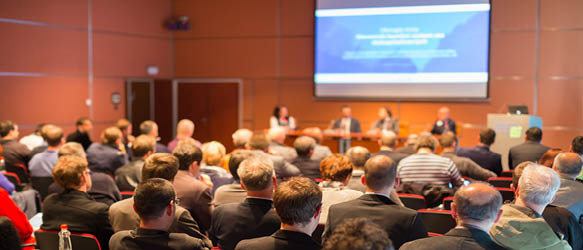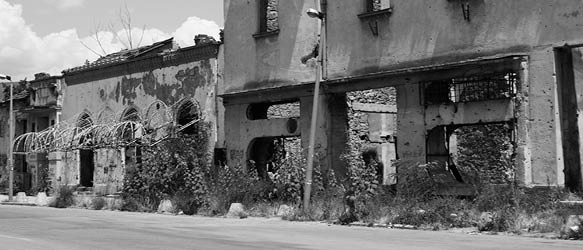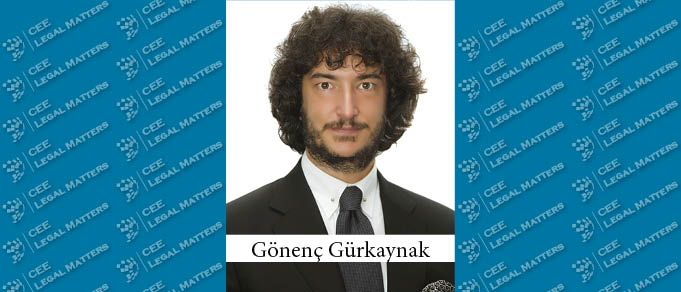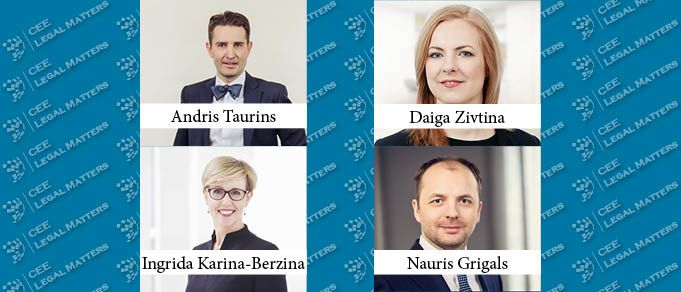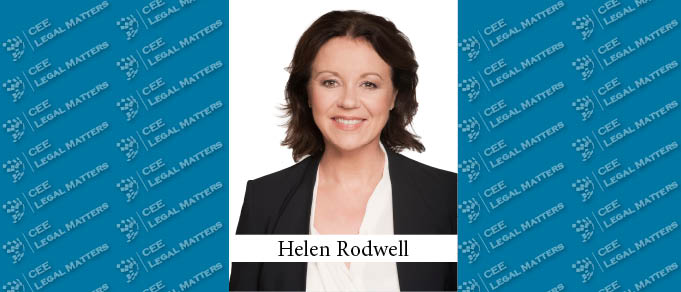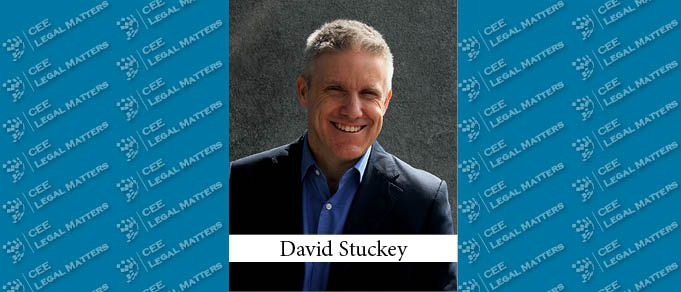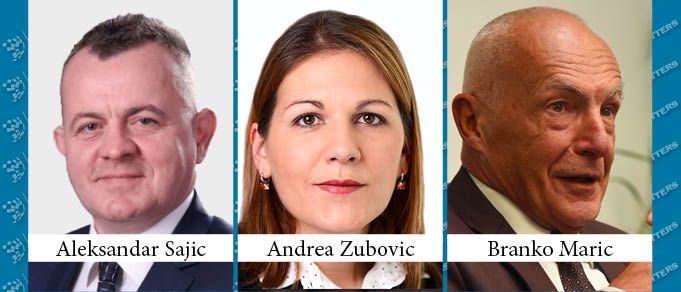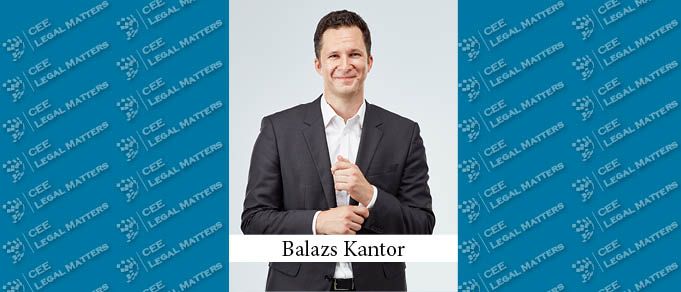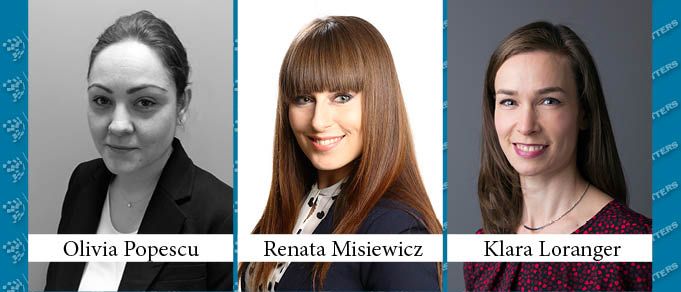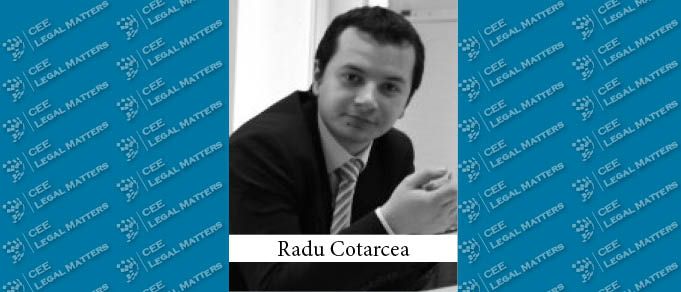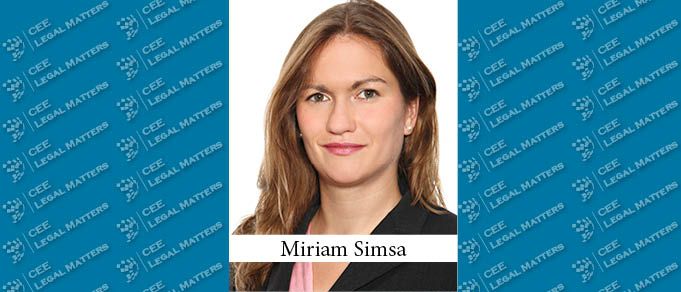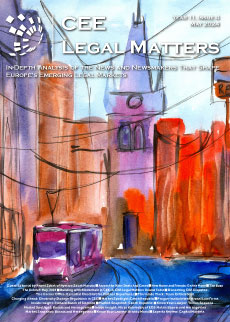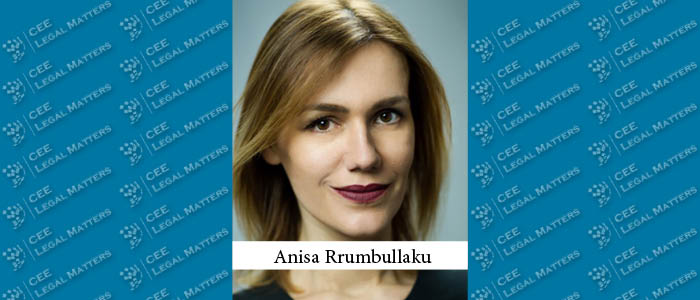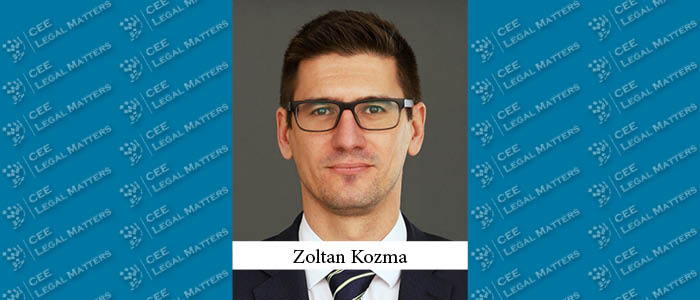According to CEE Legal Matters’ 2019 By the Numbers report, the gender balance at commercial law firms in Poland up to the senior associate level is fairly even, with 44.58% being women. However, at the partner level things change drastically, with women representing fewer than 25%. Even then, other reports suggest, many of the women lawyers who do make partner do so not at the larger, high-profile law firms, but at smaller boutiques. The “Women in Law” foundation in Poland was created to address this imbalance, and other forms of gender inequality in the legal industry, with a special focus on legal tech.
Guest Editorial: Gimme Some Lovin’
The title of this editorial is a famous song by the Spencer Davis Group – though it makes me wonder if they were CEE in-house lawyers singing to their CEOs.
Surviving the Split - Walless in Lithuania, After a Year
Over many years, the Estonian, Latvian, and Lithuanian legal markets have been dominated by the same four firms, although the names they operate under have sometimes changed. At the very end of 2018, however, the market in Lithuania, the largest of the Baltic states, shook. when a large team split off from one of those four firms, and several months later merged with a leading independent firm in the country.
Guest Editorial: Leaving Kitchen Justice Behind
In August 2007 crime fiction admirers in Latvia were thrilled to read a book, Kitchen Justice, describing an influential litigation attorney, the trial cases his office handled, and his secret relationship with judges and public figures. The protagonist was immediately recognized by readers, and the legal community was able to identify heroes less known to the public: the judges in the legal proceedings, who were privately communicating with the prominent attorney about the cases they were working on. It was apparent that the disguised author had based his fictional novel on a real-life characters and cases, and without delay, Latvia’s Chief Justice convened an extraordinary session of Supreme Court judges to set up a special panel of five reputable judges with a mandate to investigate the novel’s plot. The commission interviewed dozens of judges who had been identified in Kitchen Justice.
The Corner Office: 2020 Initiatives
In The Corner Office we ask Managing Partners across Central and Eastern Europe about their unique roles and responsibilities. The question this time around: What major initiative or new plan does your office (or firm) plan – if any – for 2020?
What Makes a Good Conference Great?
Love them or hate them, conferences are a fundamental part of the successful commercial lawyer’s calendar. But time is precious. Those calendars are full. It’s vital for conference organizers to get them right, and critical for lawyers to choose wisely in determining which events to attend and which to skip.
Practice Under Pressure: Bosnia Bounces Back
Part II of our Special Report on the Bosnian Legal Market before, during, and after the Bosnian War
Guest Editorial: Notes from A Regional Legal Hub: Turkey
I can pinpoint the exact moment when my interest in the law first flourished: I was 13 years old and my mother had given me a book called The Courage of their Convictions by Peter H. Irons, about 16 Americans who had fought for their rights and taken their cases all the way to the Supreme Court, and what I read resonated deeply within me. It later turned out that my mother had only given me the book to improve my English. But it opened the door to so much more.
Better for Business?
Latvia’s Leading Commercial Lawyers Consider the Country’s New Economic Affairs Court
The Viennese Waltz
Attendees to the 2019 CEELM Winter Party were cornered, over the course of the evening, and asked, without warning or an opportunity to prepare, what achievement over the past 12 months they were proudest of.
Emerging Europe Sets the Pace for M&A Deals as Foreign Investment into the Region Surges
Against a backdrop of global uncertainty fuelled by Brexit, a US-China trade war, and a weakening German economy, Central and Eastern Europe has proven itself economically resilient in the face of a challenging year. Led by Hungary, Poland, and Romania – all of which reported more than 4% GDPs growth – many emerging European countries have comfortably outshone the sluggish economies of Western Europe. It is, therefore, unsurprising that foreign investors flocked to the region in 2019 in search of healthy returns.
Editorial: Reflections on This Year’s DOTY Submissions
Whew! Managing the CEE Deal(s) of the Year submission process isn’t easy – and it’s getting tougher every year. But the arduous first stage of the process – collecting and organizing the submissions, creating the ballots, and transmitting them to the various shortlist panels – is over, and I now have a total of two whole weeks to focus on other things before the completed ballots will be returned to me and I will need to calculate the results, create the shortlist ballots, and send them out to the Final Selection Committee.
Guest Editorial: It’s Time to Thrive, Not to Survive
I feel a sense of optimism about Russian’s legal market that I have not felt since the dark days of the Crimean Crisis in 2014.
Talking Tax
Balazs Kantor, the Head of Tax at Lakatos, Koves & Partners in Budapest, discusses his career and his role in creating a leading practice in Hungary
Marketing Law Firm Marketing: External PR Firms
Law Firm Marketing experts from across the region answer the question: “What is your experience of working with an external public relations firm?“
Editorial: A Reflective Fever Dream
As has been this editor’s tradition in recent years, I managed to switch off my outlook over the last few days of the year and spend the winter holidays right: on a sunny, warm spot by the beach, getting my vitamin D fix. I paid my dues when I returned to cold Budapest, though, as the first signs of a flu appeared on my first evening back.
Guest Editorial: Hear and Dare – Reflections of an Austrian Lawyer Working in C/SEE
CEE is a highly-fragmented market. What sounds like a dull geographical statement actually highlights the main challenge of being a lawyer working in a regional CEE law firm.

